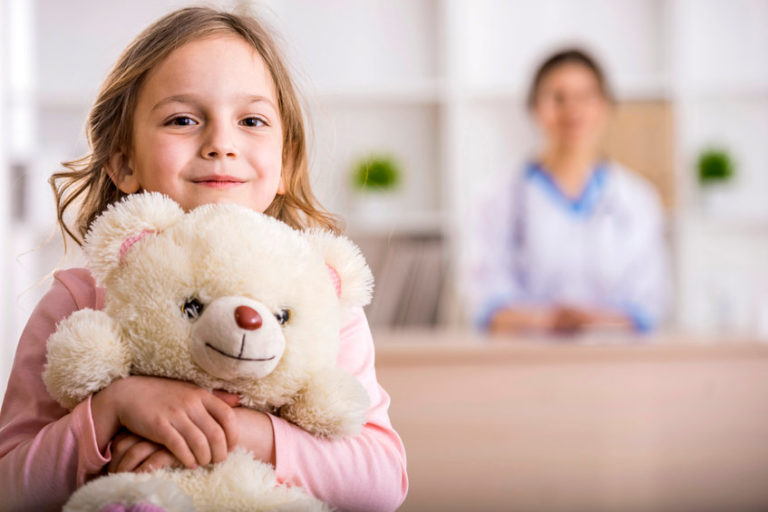

How to support children’s wellbeing during the pandemic
Inner West Mums founder Anita Vitanova interviewed two clinical psychologists in a Facebook Live session for the community in September on the topic of children’s wellbeing and the Covid-19 pandemic.
Her session with Dr Simonne Cohen from Earlwood’s Nature & Nurture Child Psychology and Dr John McAloon from the UTS Family Child Behaviour Clinic touched on some of the issues children are currently facing. As well as strategies to help parents support the young people in their lives during this challenging and uncertain time. Topics discussed ranged from concerns around screentime to how to deal with separation anxiety and how to keep kids motivated during home schooling.
Here’s a round-up of some of the insights and advice raised in this conversation. You can watch it in full on the Inner West Mums Facebook page.
Q: How can I help a sensitive 6.5 year-old exhibiting perfectionist tendencies and negative self-talk?
The Covid situation is exacerbating existing vulnerabilities or patterns of behaviour in children (as well as parenting patterns) according to Dr McAloon. He suggests parents and carers focus on the behaviours they want to see more of from their child, rather than what they want to see less of.
“We know if parents engage certain behaviours then it is likely those behaviours will increase,” he said.
“So if your child is really anxious, for instance, and you engage those behaviours, then we know fairly reliably that we’ll see that anxiety hang around. Whereas we know that if your child is an anxious child but sometimes is really without fear or brave or does stuff that you want to see more of in other ways, and you respond to that, you engage that and you make that the default, then the kid will engage in more of that behaviour.”
Dr Cohen spoke of the importance of looking “underneath behaviour”.
“Behaviour in kids is their way of expressing a need or a frustration,” she said. “Sounds like confidence and self-esteem are really underneath his comments.”
She suggested setting small goals to help build this confidence.
“If he is doing Lego that’s 8+, maybe look at doing Lego that’s for 5+, making it very easy so he does feel that sense of achievement. Any maybe just increasing the difficulty once he’s achieved those easy steps.”
Q: Prior to the return of school, how do I address separation anxiety that has arisen in a younger child who is having trouble being alone in certain rooms?
Dr Cohen said it’s important for parents and carers to be “a detective when it comes to anxiety”. Try to figure out what is behind the worry – is the child concerned about catching Covid-19 or about a parent getting sick?
“You’ve just got to really figure out what is driving the anxiety and then trying to collaborate with your child on figuring out ways to encourage bravery,” she said.
Dr McAloon talked about how anxiety can serve a purpose for both children and adults. Look at why it has become a functional behaviour- if the child doesn’t like being alone, talk to them about how we all have to be alone sometimes. Then make it a big deal anytime they are able to be alone, even if it’s just in a room for two minutes.
“We’re taught to tip toe out of the room when a kid is doing something you want to see more of and create a big fuss when a kid is doing something you want to see less of,” he said.
“It’s actually the other way around. If a kid is doing something you want to see more of, that’s when you throw the party. When kids are doing something you want to see less of, calm it down, start to withdraw the engagement.”
Q: How do you get a nine-year-old motivated to do school work during lockdown? I feel bad about them being behind when school opens up.
Dr McAloon recommends building on the parent-child relationship by doing loads of activities together, including schoolwork. Parents are still really important to a 9-year-old, versus adolescence, when friends begin having a greater influence.
“The point really here is schoolwork is just one part of the puzzle, the bigger thing is the relationship you have and you can use that relationship and harness that, energise that relationship so that it’s able to cover a bunch more stuff: chores, fun stuff, watching Harry Potter popping popcorn, and doing some schoolwork and some music practice and things like that.”
As for the worry about the child being behind, remember, most kids were not at school last term.
“Be a little bit calmed by the idea that everyone is in the same boat,” he said.
Dr Cohen said establishing routines can help. She suggests starting every day with a family check in, including working together on a plan for the day with motivators and rewards for the end.
“Rewards don’t have to be things we buy kids…the best types of rewards are social rewards,” she said.
“So doing things together as a family, movie nights, trying to figure your child’s currency and meeting their needs and rewarding them socially is really powerful.”
Q. What’s the difference between rewards and bribery?
Dr McAloon said to think of rewards as being reinforcements to encourage behaviours you want to see more of in your child. This includes physical and verbal responses such as praise, your face lighting up and cuddles.
“Anything you do that will see more of a behaviour in a child,” he said.
Q. How can I handle the increasing anxiety of my pre-teen about going back to school, an environment where she has faced bullying?
Dr Cohen said this is one of the most common problems being raised by the children attending her clinic at the moment. Self-esteem is the key here, which she described as being “like a shield”. Make the shield stronger by focusing on other aspects of life, beyond the social. Such as academic achievement, family contribution and hobbies or outside interests.
“You build up your self-esteem like a barrier so that means anything bad that happens, everything bounces off your self-esteem, that shield,” she said.
Dr McAloon suggested talking to the child about practical strategies for tackling social encounters such as lunchtime at school, to help alleviate the concern.
“When bullying gets to a level where a child is distressed about it, then you are well within your rights to approach the school and have a chat about it. Public schools in NSW have to have a bullying policy, and they are obliged to respond to you if you are concerned your child is being bullied at school. They have a duty of care.”
Q. How much screentime is too much at the moment?
Home schooling and a lack of in-person social interaction during lockdown has increased the use of screens in many households.
Both Dr McAloon and Dr Cohen talked about the importance of moderation with screentime, and the need for setting – and sticking to – limits.
“It’s really stimulating the reward centre of our brain, so kids are really getting angry when they have to get off devices, or angry when they have to separate from the reward aspect of devices,” Dr Cohen said.
Usually Dr Cohen would recommend a maximum of one hour a day of ‘fun time’ on a device. In lockdown that’s likely to be more, but make sure it’s not excessive. And keep an eye out for any cyberbullying that might be occurring. She suggested two apps for parents to monitor their child’s screentime, Bark and Family Zone.
“The advice I would say is try to separate ‘fun’ device time from ‘education’ device time,” she said.
If possible, she advises having separate devices for each. One device for schoolwork, with no fun activities. And another for fun – gaming and social media.
And if you’re concerned about your child’s screen habits, the first step might be to look at your own.
“Your kid’s screentime likely reflects your screentime,” Dr McAloon said. “If you are on your phone at the dinner table, then you are sending a message that this thing is OK in my face a lot. And if that is not the message you want to be sending, then I would be changing that message.”
He also reminded parents to be mindful of the types of personal information kids are sharing online.
Dr John McAloon is a Senior Lecturer in Clinical Psychology at UTS. In 2015 he established the UTS: Family Child Behaviour Clinic. There is currently limited availability at this small clinic. But appointments are available at the UTS Psychology Clinic, a low cost centre run by Clinical Master’s students under supervision from Dr McAloon and his colleagues.
Dr Simonne Cohen works with children and their families at the Nature & Nuture Child Psychologists clinic in Earlwood. There is currently a waiting list for their services, but they do offer virtual support if more immediate help is needed.














